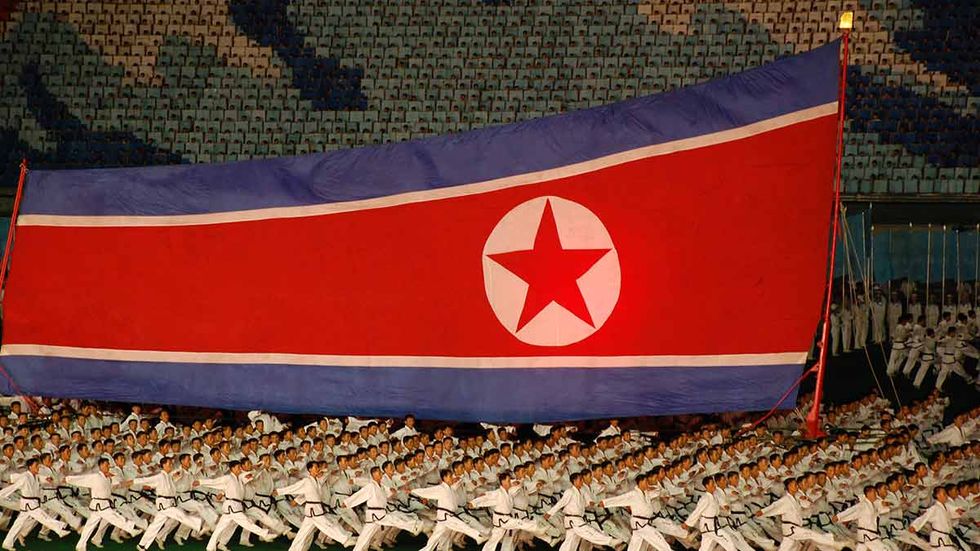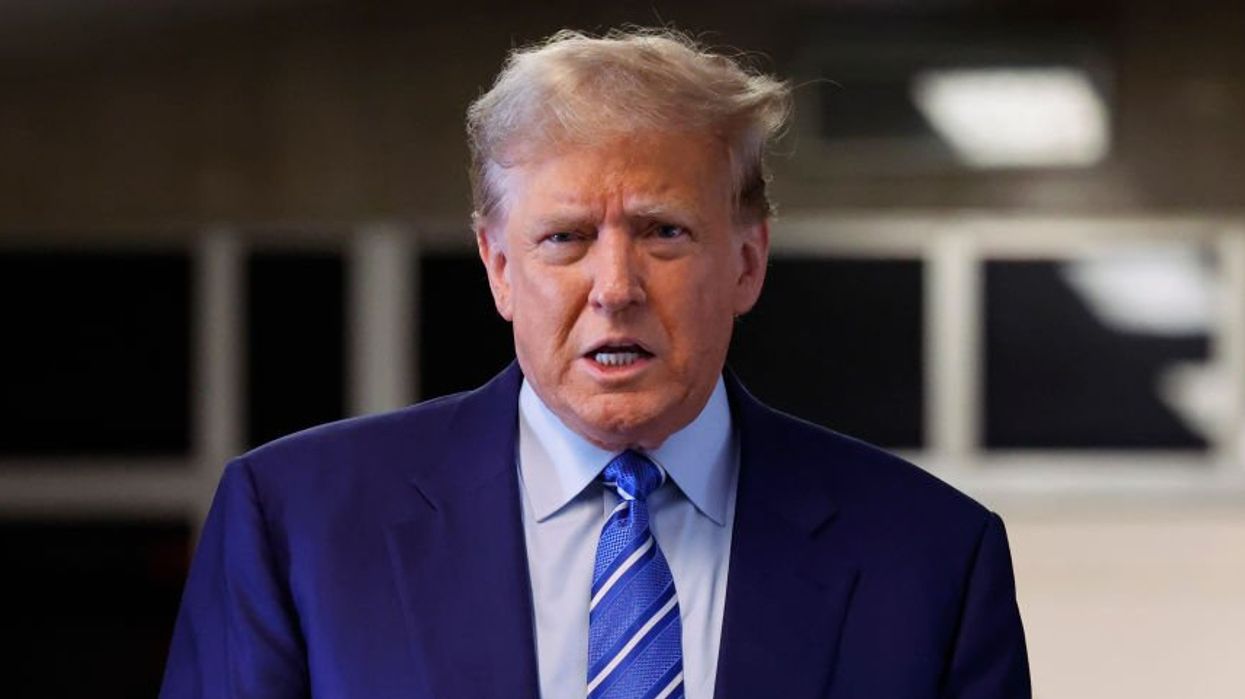
© 2024 Blaze Media LLC. All rights reserved.
America should call Kim Jong Un’s North Korea what it is: A modern-day gulag
April 18, 2017
Why do we ignore the fact that North Korea is a modern-day gulag?
This is a question I find myself asking as America turns its attention to a communist dictatorship devoid of all freedom that threatens our nation with nuclear war.
As the United Nations Human Rights Council — comprised of many far from classically liberal member nations in its own right — put it in its 2014 Inquiry on Human Rights in North Korea:
[C]rimes against humanity have been committed in the Democratic People’s Republic of Korea, pursuant to policies established at the highest level of the State. These crimes against humanity entail extermination, murder, enslavement, torture, imprisonment, rape, forced abortions and other sexual violence, persecution on political, religious, racial and gender grounds, the forcible transfer of populations, the enforced disappearance of persons and the inhumane act of knowingly causing prolonged starvation…Persons detained in political and other prison camps [totaling an estimated 80,000 to 120,000 prisoners including family members up to three generations removed from the original “guilty” party], those who try to flee the State, Christians and others considered to introduce subversive influences are the primary targets of a systematic and widespread attack against all populations that are considered to pose a threat to the political system and leadership of the Democratic People’s Republic of Korea…
In addition, the commission finds that crimes against humanity have been committed against starving populations, particularly during the 1990s. These crimes arose from decisions and policies violating the right to food, which were applied for the purposes of sustaining the present political system, in full awareness that such decisions would exacerbate starvation and related deaths of much of the population.
Sure, it makes sense that a press that has ignored the man-caused disaster of socialist Venezuela would similarly airbrush away the nasty, brutish, and short lives of North Koreans suffering under communist rule. For it is not in the interest of progressives to show what happens when their long march through the institutions reaches its logical conclusion: namely poverty, depredation and the sapping of the human spirit. Better to focus on the person of Kim Jong Un, a portly, seemingly mad, and cartoonish dictator figure rather than the human misery caused by his regime’s collectivist ethos.
Though to be fair, in this case, even some leftist outfits like Human Rights Watch cannot avert their eyes.
As for the Trump White House, it is rightly focused on the military threat posed by North Korea. We do not yet know what the president views as an ideal resolution to current hostilities. Some possibilities: Cessation of all nuclear weapon-related activities; the dismantlement of certain military infrastructure and destruction or disposal of certain materials and technology; and/or the replacement of Kim Jong Un by a leader deemed acceptable to the U.S. The administration’s end game may be even more ambitious, or perhaps it is flexible in its aims.
What we do know is that President Trump is pursuing a concerted effort to exert pressure direct and indirect, military, economic, and diplomatic on the North Korean regime. Such measures include: proceeding with early deployment of the so-called THAAD missile defense system in South Korea; conducting joint military exercises with the South Koreans; sending the Carl Vinson aircraft carrier strike group toward the Korean Peninsula(media reports later indicated the carrier was not heading towards Korea but was thousands of miles away at the time of Trump's announcement); showing a willingness to use force by way of its strike on Syria’s Sharyat airfield and to a lesser extent the use of a MOAB in Afghanistan; hinting at undertaking renewed efforts to damage North Korea economically, presumably through increased sanctions on the regime and those individuals with whom and institutions with which it does business; and pulling what levers it can with respect to the Chinese in an attempt to push Beijing to rein in Pyongyang — with the end goal of such reining in again to be defined.
Given such efforts, one might think it unnecessary to focus on the information warfare space. From the point of view of America’s national interest, North Korea’s gross human rights violations are of secondary importance to the direct threat it poses to America not only by way of conventional force but also cyberwarfare and beyond.
And indeed, it may be that the Trump administration believes it in its political interest to avoid harping on the regime’s savage brutality — whether in trying to leverage a repressive Chinese regime or seeking to bring its client state of North Korea into direct negotiations.
But if all options are indeed on the table, and given that the economic and diplomatic tracks may fail to achieve the Trump administration’s aims, given the U.S.’ historical record, it would behoove the administration to make a comprehensive case against Kim Jong Un’s regime beyond its hostile behavior, provocations and potentially more catastrophic actions for two primary reasons: (i) To further delegitimize and alienate the regime, and (ii) To rally U.S. public support for whatever more aggressive actions may come.
And to the degree to which America can flood the North Korean mainland with counter-propaganda to the Kim regime, a la Voice of America during the Cold War, that would be all to the better in creating favorable on-the-ground conditions for U.S. action. Dropping leaflets and thumb drives over highly populated areas could prove impractical, but successfully arming the North Korean people ideologically and overwhelming authorities unable to stop the spread of ideas — in particular while the world is watching — would be a highly positive development.
If the pursuit of an America First foreign policy may require a limited or major set of strikes on North Korean sites of strategic importance, or ultimately a U.S. ground presence, the administration should make the case against Kim Jong-un and his communist cronies upfront.
The American public and their representatives should clearly understand the context and rationale for potentially using force.
This is especially important given America’s war-weariness and the lack of coherence and moral clarity prior administrations have shown when they have chosen to engage militarily.
Rallying the American public, and thus causing a groundswell of support for a formal declaration of war by Congress — if it comes to it — would represent a welcome change from the ad hoc actions of recent administrations, and a welcome rebalancing of power between the political branches that would give the decision to engage in military action further legitimacy.
It might also entice other nations wobbly on the action to be more apt to join an American-led coalition.
Lastly, in the face of the public relations nightmare that China could face in supporting a regime shown to be as horrific as that of Kim Jong Un’s, it might be more likely to comply with America’s wishes in terms of disarmament and/or regime change. This of course might enable us to avoid direct military action.
Clearly there are compelling defensive reasons alone for why America would be justified in using military force against Kim Jong Un’s regime: namely, the capability and stated willingness if not desire to strike the U.S. homeland or at the very least our regional military forces and allies with nuclear weapons. This is not to mention North Korea’s crippling cyber warfare capabilities, which it already used to attack Sony.
But in pursuit of efforts to undermine Kim’s regime and thus weaken his hand, it would be in America’s national interest to expose the tyranny to which its escapees can attest as well. For the truth is a weapon against dictators, especially when backed by the threat of overwhelming military force.
Editor's note: Media reports following this article's publication, indicated the USS Carl Vinson was not heading towards North Korea as President Trump had previously announced.
#mc_embed_signup{background:#fff; clear:left; font:14px}
/* Add your own MailChimp form style overrides in your site stylesheet or in this style block.
We recommend moving this block and the preceding CSS link to the HEAD of your HTML file. */
Want to leave a tip?
We answer to you. Help keep our content free of advertisers and big tech censorship by leaving a tip today.
Want to join the conversation?
Already a subscriber?
more stories
Sign up for the Blaze newsletter
By signing up, you agree to our Privacy Policy and Terms of Use, and agree to receive content that may sometimes include advertisements. You may opt out at any time.
© 2024 Blaze Media LLC. All rights reserved.
Get the stories that matter most delivered directly to your inbox.
By signing up, you agree to our Privacy Policy and Terms of Use, and agree to receive content that may sometimes include advertisements. You may opt out at any time.


